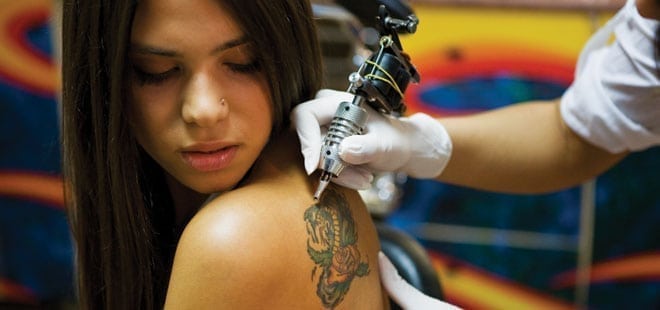What Parents Should Really Know Before Their Teen Gets a Tattoo
Tattoos aren’t just a fringe trend anymore they’ve become part of the cultural wallpaper. According to a Harris Poll, about three in ten American adults now sport at least one tattoo, a sharp rise from just a few years ago. Among Millennials, the number jumps dramatically, with nearly half of them inked.

For parents, that means one thing: more and more teenagers are asking, “Can I get a tattoo?” and parents are being pulled into a decision that can feel oddly permanent.
The Law and the Limits
In most U.S. states, you need to be 18 to get a tattoo. However, parental consent opens the door earlier in many places. That means plenty of families are now navigating a modern rite of passage that didn’t exist for earlier generations: the “tattoo talk.”
Tattoos Aren’t as Easy to Undo as They Are to Get
While tattoos have shed much of their stigma, they still carry weight socially and professionally. A 2014 survey cited by the American Academy of Pediatrics (AAP) found that 76% of people believed their tattoo or piercing had hurt their job prospects.
Sure, attitudes are changing, and some industries are more open-minded than others. But let’s be honest: teenagers rarely know where their career paths will lead. What feels like a bold personal statement at 17 might feel less appealing at 27, especially when it’s visible during a job interview.
And tattoo removal? That’s another story. Laser removal can cost anywhere from $49 to $300 per square inch and even then, complete erasure isn’t guaranteed. Fading and scarring can remain as reminders.
Placement and Design Matter More Than You Think

Parents who decide to allow a tattoo can still play an important role in guiding where and what. Encourage your teen to choose something timeless rather than trendy, and a location that can be easily covered if needed. A meaningful, discreet design on the shoulder or back will age far better than an impulsive wrist tattoo of a TikTok meme.
Health Risks Are Rare But Real
The most serious tattoo risk isn’t aesthetic, it's infection. Poor hygiene, contaminated needles, or unregulated equipment can lead to skin infections or even bloodborne illnesses.
That’s why the AAP strongly advises parents and teens to verify that the tattoo studio follows proper infection-control practices. Essentially, it should look and operate as cleanly as a medical office. The facility should be state-regulated, use sterile sin-use needles, and provide aftercare instructions.
And here’s something many parents overlook: anyone getting a tattoo should be up to date on all immunizations, especially tetanus and hepatitis shots. Teens with immune issues or chronic illnesses should talk to a doctor before making the appointment.
What About Scarification?

Some teens are drawn not to ink, but to “scarification” cutting or burning designs into the skin. Unlike tattooing or piercing, scarification is less regulated and often illegal in some states. It also raises red flags: sometimes what appears as body art might blur into self-harm.
If a teen is cutting or burning themselves outside of a controlled, professional setting, that’s not about art, it's a signal that they might need emotional support. Parents should reach out to a healthcare provider or mental health professional right away.
The Regret Factor
Here’s a sobering statistic: nearly one in four people who get tattoos later regret them. The most common reason? They were simply too young when they made the decision. Other explanations include breakups (“that name didn’t age well”), career shifts, or realizing the tattoo no longer matches their lifestyle or identity.
The Parent’s Role: Slow Down the Impulse
Teens, by nature, are impulsive. The brain’s decision-making center, the prefrontal cortex, is still under construction well into the early 20s. That means parents sometimes need to act as the brakes, not the gas pedal.
There’s no such thing as a “tattoo emergency.” Encourage your teen to take time months, ideally to sit with the idea. If they still want the tattoo after thoughtful consideration, it’ll mean more. And if not, you might have saved them pain, money, and regret later on.
What's Your Reaction?




















